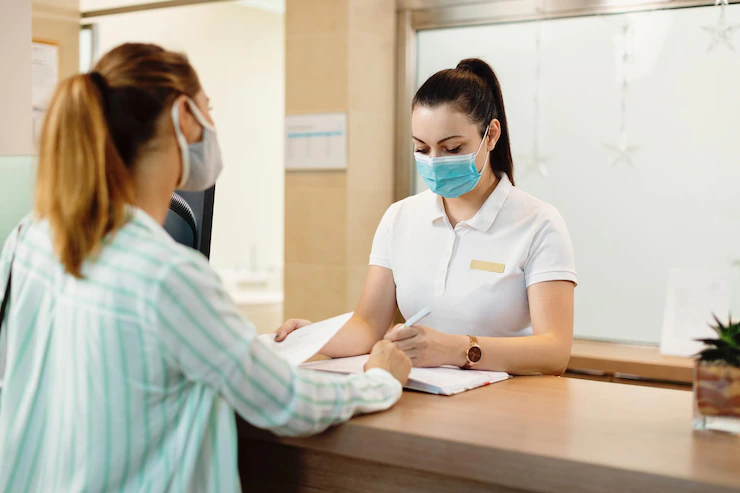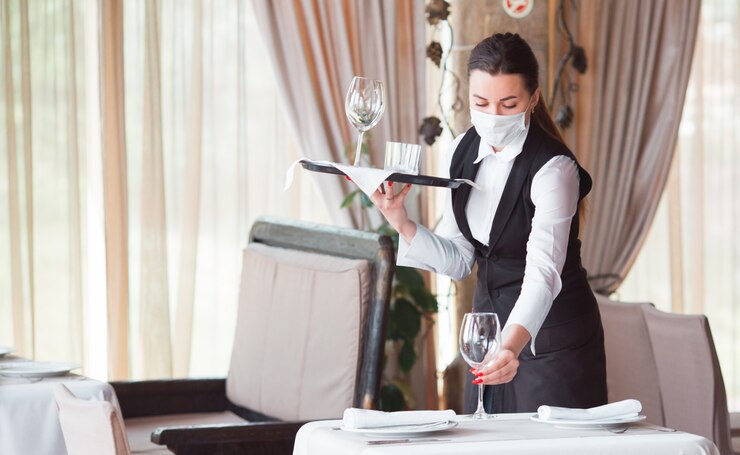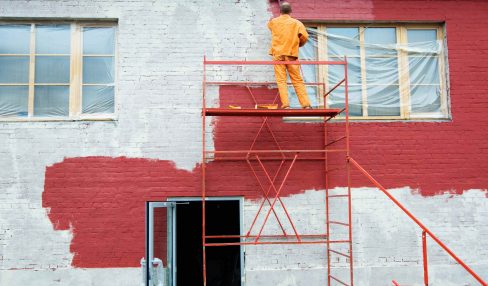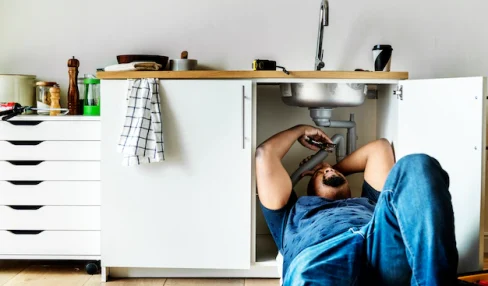6 Ways To Promote Hygiene And Safety In Hotel Industry
26 August 2022
4 Mins Read

toc impalement
The hotel industry is a business that attracts millions of people every year. As the number of tourists increases and the competition for their business grows, hotels need to ensure that they are providing a safe environment for everyone.
Here Are Six Simple Steps To Promote Hygiene And Safety In Hotel Industry:

This includes ensuring that their employees follow strict hygiene and safety rules in order to maintain high standards of cleanliness at all times.
1. Create a Hand-Washing Checklist
Hand washing is the most important way to prevent the spread of disease, foodborne illness, and infections. And it’s also the most important thing you can do to protect yourself against pathogens.
This checklist will remind employees to wash their hands before starting work, after each bathroom break, and after handling any used items such as linens or trash. It will also help them remember which hand they should be used for certain tasks: right for food preparation tasks, left for everything else.
2. Wearing Hand Gloves
Wearing hand gloves is important, especially, when handling garbage, including while emptying trash cans and taking out the trash bins at the end of your shift by wearing latex hand gloves over your hands to prevent contamination from dirty or sharp objects in the trash (i.e., cardboard boxes).
Wear old clothes that are not worn out at work so that you do not get any stains on them from cleaning chemicals or other substances like blood and bodily fluids which happen occasionally in some cases such as during menstruation when female staff members have to clean themselves with toilet paper if they do not have access to sanitary napkins/tampons so wearing old clothes helps avoid getting any stains on their new uniforms/clothes while doing these tasks.
3. Use Alcohol for Cleaning
As a longstanding method of cleaning, alcohol is used for disinfection and to remove stains on surfaces. It’s also a great way to clean up messes in the hotel industry.
Alcohol can be found in many forms, including rubbing alcohols often used to remove nail polish or denatured alcohols such as ethanol or ethyl alcohol (also known as grain alcohol).
You should use the following steps when using an alcoholic cleaner:
- Ensure you wear protective gear such as gloves and eye protection before handling any chemicals.
- Use warm water to dilute the solution if needed. For example, one cup of water mixed with one teaspoon of rubbing alcohol will make a mild but effective disinfectant/cleaner/polish remover solution.
- Apply your solution generously across all surfaces you want to be cleaned (or just rub it onto areas directly). Let sit for five minutes before wiping down with paper towels, this helps loosen dirt from tough spots like grout lines on tile floors.
4. Safer Housekeeping Practices
- Use a disinfectant spray to clean surfaces. This will help prevent the spread of germs, and it’s much easier than having to wash down every surface with soap and water.
- Clean floors with a disinfectant mop. Housekeeping staff should clean floors daily with mops soaked in a solution of 1 part bleach and 10 parts water (or 5% strength). This should be done early in the day so that it has time to dry before guests return later in the day.
- Clean carpets with a vacuum cleaner. Vacuuming is an effective way for housekeeping staff to remove dirt from carpets without having to physically scrub them or use chemicals on them that could be harmful if ingested by pets or children who may spend time on the carpeted areas of hotel rooms when hotel guests are out of town on business trips or vacations; however, vacuuming alone won’t kill all germs present within carpet fibres because they tend not to get deep inside their structure due to how tightly woven they tend towards each other when manufactured into large carpet squares/rugs which means only certain types can reach those depths despite being able.
5. Train Workers on Safe Food Handling
Food safety is a big concern in the hotel industry. The food you serve to your guests can make or break your reputation, so it’s important to do everything right when it comes to food preparation and handling.
Train workers on safe food handling. Food handlers need to be trained on the proper use of personal protective equipment (PPE), including hair nets and gloves; as well as food safety, storage of food items, handling of raw materials, etc.
This will ensure that each worker follows standard procedures while working with ingredients or cooked meals from the kitchen area which helps prevent any potential risk factors such as contamination by pathogens causing illness among guests who consume them later on.
6. Promote Safe Smoking Practices
In order to promote the health and safety of their guests, hotels should:
- Prohibit smoking in all public areas, including guest rooms and common areas.
- Prohibit smoking in all guest rooms.
- Prohibit smoking in all common areas.
- Prohibit smoking in all outdoor areas, such as balconies, terraces, and gardens.
- Prohibit smoking in food preparation areas (kitchens), such as dining rooms or bars where cooking takes place on-site; also ban it from service/laundry rooms where towels are cleaned by machines that may emit toxic fumes into the air if cigarettes are present.
Conclusion
The hotel industry is a big business and it needs to be taken seriously. The way you treat your customers can make or break you, so it’s important for you to take every possible precaution when it comes to cleanliness and safety. By following these tips, you can create the best experience possible for your guests.
Read Also:


















Comments Are Closed For This Article